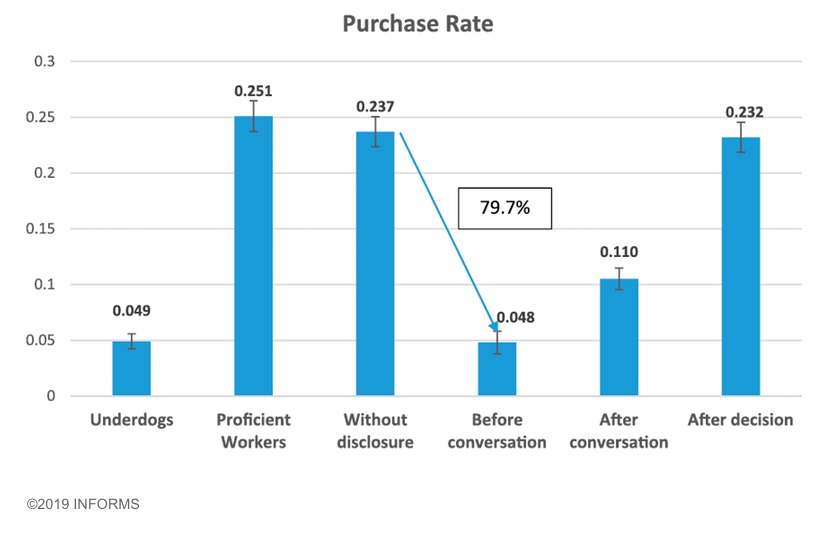
Image by: AndreyPopov, ©2019 Getty Images
In a new study released by the Institute for Operations Research and the Management Sciences (INFORMS), they found that artificial intelligence (AI)-driven chatbots can outsell inexperienced human employees by five times—with zero marginal costs (and no bad days).
The catch? Sales rates nose-dived by 79.7% when customers knew they were talking to a chatbot.
This research is based on data collected from 6,255 customers of a financial services company in Asia. These customers were randomly selected to receive a structured sales call from a chatbot or a person. To arrive at the findings, research analysts varied disclosing when a customer was speaking to a chatbot (e.g., no disclosure or disclosure before, during, or after the conversation). To measure the effectiveness of chatbots against human expertise, proficient and inexperienced human workers were both used.
Chatbots simulate human conversation, whether on the phone or in text-based chats, using AI to select and respond with the appropriate choice to human input. In fact, the market for chatbots is ballooning rapidly, increasing from $250 million in 2017 to a projected $1.34 billion in 2024. The use of this AI-driven tool spans across individual services (e.g., search and shopping or even making reservations) to commercial purposes (e.g., taking orders or recommending products).
In the report titled "Machines vs. Humans: The Impact of Artificial Intelligence Chatbot Disclosure on Customer Purchases," the authors reveal a tension in the use of chatbots. While they can be more effective than an underperforming or inexperienced human worker, many people have an aversion to talking to a piece of software code. The research showed that this belief is only a perception. In undisclosed chatbot conversations, the chatbot was objectively evaluated to be as knowledgeable and empathetic as a human worker.

In the report, "Machines vs. Humans: The Impact of Artificial Intelligence Chatbot Disclosure on Customer Purchases," analysts measured customer purchase rates across inexperienced human employees, proficient human workers, no chatbot disclosure, and chatbot disclosure before, during, or after conversation.
In addition to the insights around the effectiveness of chatbot disclosure on sales success, the research also indicates that people can be “trained” to accept chatbots via two potential mitigation strategies.
While privacy regulations are pushing companies to reveal the use of chatbots in customer communications, the research shows that the timing of the revelation can be key. When disclosed after the conversation, no negative consequences were shown. Further, a good impression from a chatbot conversation can lead to the same customer being more receptive to chatbot interaction in the future.
In addition, customers who used other AI apps were also less likely to react negatively to chatbot disclosure early in the conversation.
As companies continue to use chatbots for sales, customer service, order taking, and more, the research indicates that negative reactions to chatbots will decrease over time. Until then, companies should mitigate potential negative impacts by segmenting customers based on their familiarity with chatbots or even offering discounts for using the chatbot over talking to a person.
The use of AI chatbots is in its infancy, but the future is exciting.
Bryant Duhon is a Staff Writer and Contributing Editor at DOCUMENT Strategy, covering the latest technology trends and solutions in customer communications, marketing, customer experience, and information management markets. He was a longtime Editor, Community Manager, and Marketer at AIIM. Follow him on Twitter @bduhon.





